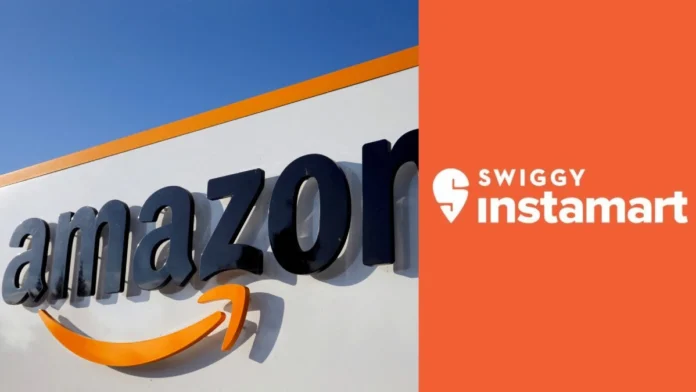Amazon India is reportedly in discussions with Swiggy regarding a potential deal involving the latter’s quick commerce arm, Instamart. This move comes as Swiggy gears up for a significant public offering, having recently filed draft documents with the Securities and Exchange Board of India (SEBI) for a ₹10,414 crore ($1.25 billion) IPO, one of the largest for a tech company in the region.
The negotiations between Amazon and Swiggy are still in the preliminary stages, and no formal offer has been made. Amazon is contemplating either acquiring a stake in Instamart through the ongoing pre-IPO placement or pursuing a complete buyout of the business. However, the complex nature of the deal presents several hurdles. The potential acquisition is complicated by Swiggy’s current valuation and its reluctance to sell only its quick commerce division. Additionally, Amazon’s typical approach does not favor minority stakes, which could impact the feasibility of the transaction.
Swiggy, which has been actively expanding its offerings, including its quick commerce platform Instamart, is also exploring other financial maneuvers to prepare for its IPO. Recently, the company has been selling secondary stakes to reduce the shareholding of its major backer, Prosus, and has initiated a $65 million ESOP buyback program to offer liquidity to its employees.
Amazon’s interest in Instamart aligns with its broader strategy to enhance its quick commerce capabilities in India. The e-commerce giant has been developing its own quick commerce initiatives but would need global clearance to establish such a vertical, as it does not currently offer these services in its other markets.
The quick commerce sector is rapidly growing, and competition is intensifying, with major players like Swiggy, Zomato, and independent platforms like Zepto vying for dominance. Swiggy’s expansion into new categories like Genie and Instamart positions it strongly in this competitive landscape.
The outcome of the negotiations will depend on overcoming the structural complexities of the deal and aligning with Amazon’s strategic goals. Both companies are expected to continue exploring their options as they navigate the evolving quick commerce market.


Recent Comments